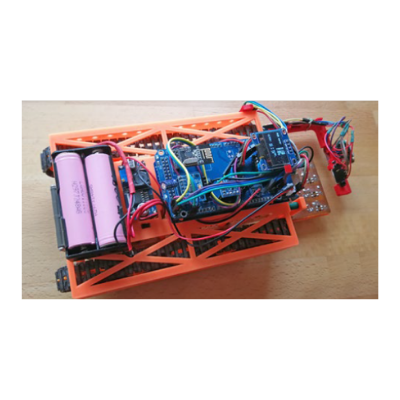The Modelling Educational Robot (MER) European project seeks to improve the knowledge and skills of vocational students in response to the prevailing needs of the labour market. The MER learning proposition is based on knowledge of robotic components and their application through the development of modular robots.
Having already developed a basic robot prototype, containing motors, motion sensors and basic programming, the team is now evolving the project in a modular way by adding a more expert layer of knowledge. This new layer will enable the robot to interact so that it can sense, move and handle objects through the use of complex sensors, thus generating valuable information such as distance measurement, movement programming, speed and trajectory.
Three vocational training academies from Europe are helping to develop the robot, under the oversight of two universities and AIJU itself, which is implementing the eLearning platform so that anyone interested in the subject can learn about and assemble their own modular robots while increasing the level of difficulty.
The participating schools are also holding internal competitions to motivate their learners. For example, the latest challenge has been a competition to design the final robot. The best solution and design will be used to implement the project requirements.

Users can now visit the MER website and eLearning platform developed by AIJU to download all the files for the basic robot and the intermediate robot free of charge, including designs for 3D printing, components and programming files.
The MER project is coordinated by the SOLSKI CENTER NOVO MESTO vocational training centre in Slovenia, with the participation of two other vocational training centres —ITIS Polo Tecnico Fermi-Gadda in Italy and Muratpasa Mesleki ve Teknik Anadolu Lisesi in Turkey— together with the Faculty of Electrical Engineering of the University of Ljubljana in Slovenia and the International University of Sarajevo in Bosnia and Herzegovina. AIJU fulfils the role of technology centre within the consortium by bringing its technological experience to bear and developing the eLearning platform for the project, adapting curricular content and modelling interactive activities to optimise content adaptation. The modularly conceived platform will enable progressive learning to move from more simple and basic robots to more advanced robots that can be programmed to perform tasks autonomously.

For more information: César Carrión – josesola@aiju.es
Ignacio Seguí – natxosegui@aiju.es
